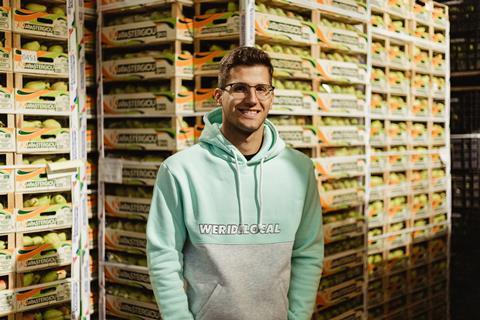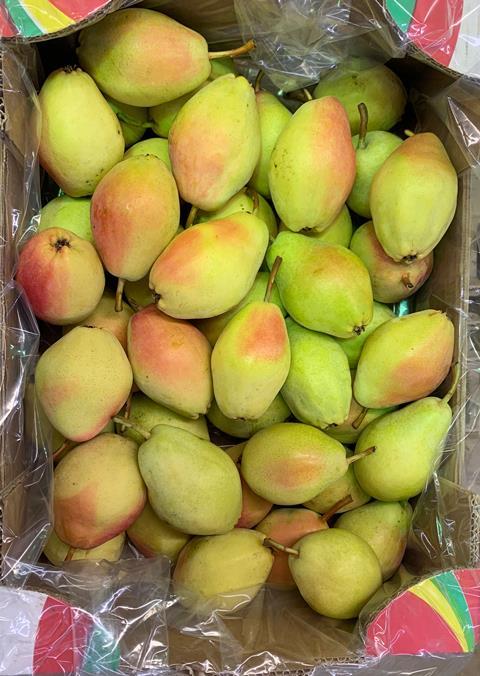Soaring temperatures represent an additional challenge for the Greek pear and stonefruit supplier, which is already managing the impact of the spring’s hailstorms and rainfall
As large parts of Greece swelter under 40C-plus temperatures, and as wildfires rage in the south of the country, it’s easy to neglect the continuing impact of the spring’s hailstorms, not least for the country’s stonefruit crop.
“This season was one of the most challenging ones for stonefruit, especially for apricots,” says Paris Karastergios, import-export coordinator at Karastergiou Bros. “April’s hailstorms affected most Greek production regions, leaving only a very small percentage of undamaged apricots behind.”
However, due to a lack of production in Italy and Spain, early and mid-season varieties were easily absorbed by European markets, according to Karastergios.
“At the moment the demand for late varieties is not that high,” he says. “Hailstorms also left their mark on plums too, affecting mostly the early varieties. Large, high quality plums are in demand at the moment, while smaller fruits have been exported to North African countries at low prices.”

Karastergiou Bros’ main product is pears, for which the season is currently in full swing, with the company offering the Coscia, Santa Maria and Blanquilla varieties worldwide. However, Karastergios admits to being a little underwhelmed by this year’s quality.
“We were hyped for this season’s pear campaign, as all of our clients are interested in increasing their volumes,” he says. “But a few days before the beginning of the harvesting period, the quality in the majority of the fields was disappointing.”
Hail damage is the biggest concern this season, he says, affecting a significant percentage of Greece’s total acreage, while chilly temperatures in May and June resulted in smaller sizes compared with last season.
“In addition, heavy rainfall in June kept washing away necessary pesticides, so there are quite a few fields where pears have rusted skin,” reveals Karastergios. “It’s harvesting time at the moment, which means that extreme temperatures may speed up the ripening process inside the fruits. As a result, we will have to be twice as careful to calculate the harvesting time for each field, measuring and documenting the Brix levels of the fruits in order to avoid early maturity during coldstorage.”

Given the conditions, it is understandable that sustainability is increasingly becoming a priority for the company. “We are planning to invest more and more time and resources on such projects,” says Karastergios. “This spring, we installed a 100kW solar plant on the roof of our premises, in order to produce and consume electricity in a more eco-friendly way.”
The biggest challenge, however, remains the high costs associated with labour and energy. “Not only is it really hard to find trained personnel for picking and packing the fruit, but also salaries have risen by 20-25 per cent, and the insurance fees we pay to the state remain high,” he says. “In Greece, energy costs have doubled over the past two years, increasing the costs of electricity and packaging materials.”
Nevertheless, each year the company aims to keep its equipment up to date with newer hardware and software. “We installed a state-of-the-art sorting line from Unitec two years ago, and this year we adopted a Customer Relationship Management (CRM) tool to manage our clientele more efficiently, as well as a brand-new remote monitoring system for the temperature and the humidity levels in our coldstores,” says Karastergios.
As for exports, Karastergiou Bros currently has a good presence in Israel with Coscia, Santa Maria and Blanquilla pears, and supplies consistent volumes of smaller sized Coscia and Santa Maria to Jordan.
“This season, we would like to ship bigger volumes to other markets like Saudi Arabia, Oman and the UAE, where we will enter the market with Coscia,” states Karastergios. “We would also like to expand our presence in northern European markets with Santa Maria. We are also in discussions to expand our portfolio with a pear variety that is new to Greece. When the plantations are ready, we believe there is going to be a revolution in our sector.”



